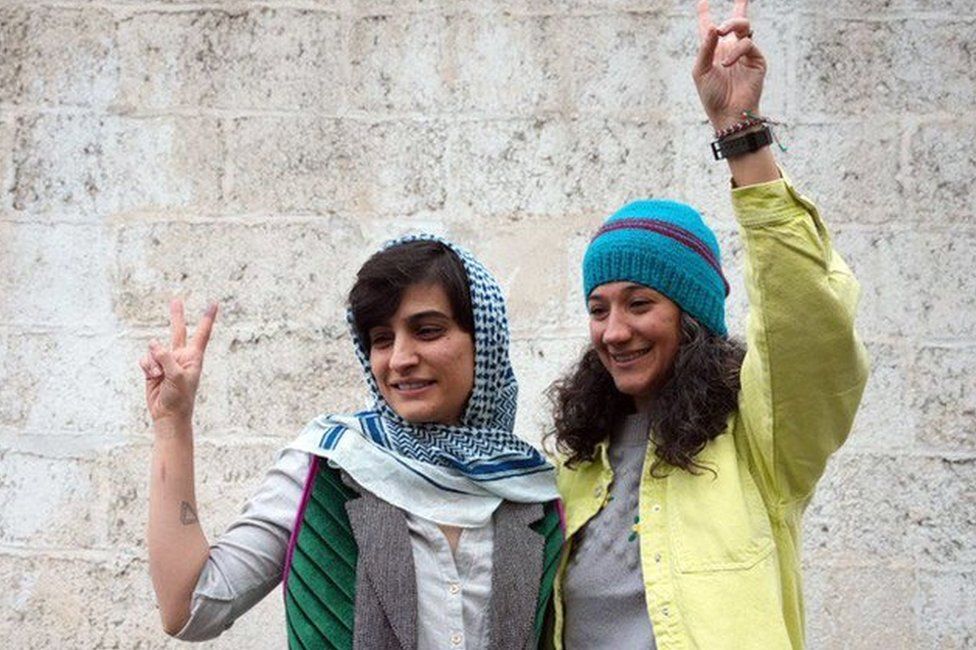Iran judiciary files new hijab case against released journalists
- Published

Iran's judiciary says it has opened a new case against two female journalists for appearing without the compulsory hijab upon their release from prison.
Niloufar Hamedi and Elaheh Mohammadi were pictured with their hair uncovered after 17 months in detention.
They helped break the story of Mahsa Amini's death in 2022, which sparked mass protests against the hijab laws.
In October, they were jailed for seven and six years respectively on national security charges, which they denied.
Reporters Without Borders (RSF) condemned their trials as a sham, saying their lawyers were notified of hearings at the last minute, given only a few hours to examine case files, and not allowed to address the judge.
A court approved the women's release on bail of 10bn tomans ($193,000 at the open market rate) on Sunday while they appealed against the sentences.
The decision was celebrated by the newspapers which employ Ms Hamedi and Ms Mohammadi, and many Iranians online, with many sharing pictures of them outside Tehran's Evin prison.
Iranian media reported in August that authorities had questioned or arrested more than 90 journalists since protests erupted in response to the death in custody of Mahsa Amini, a young woman who was detained by morality police in September 2022 for allegedly wearing her hijab "improperly".
Ms Hamedi, a journalist with the Sharq newspaper, photographed Mahsa Amini's father and grandmother hugging each other in hospital after learning that she had died after three days in a coma. She posted it on Twitter with the caption: "The black dress of mourning has become our national flag."
Ms Mohammadi, a reporter with the Hammihan newspaper, published a story about Ms Amini's funeral in her hometown of Saqqez. She described how hundreds of mourners cried out "Woman, life, freedom", which became one of the main slogans of the protests.
They were arrested weeks later and subsequently accused of "collaborating with the hostile US government" and "propaganda against the establishment". They rejected the charges, insisting that they were just doing their jobs.
- Published14 January
- Published5 May 2023
- Published12 January 2023
- Published15 September 2023